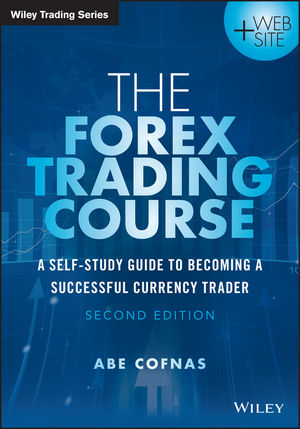What to Get out of an Expert Forex Trading Course in 2024
What to Get out of an Expert Forex Trading Course in 2024
Blog Article
Comprehending the Fundamentals of Money Exchange in Today's Global Market
In a significantly interconnected global economy, understanding the principles of money exchange is essential for stakeholders throughout different markets. Exchange prices, shaped by an intricate interplay of financial indications and geopolitical factors, have extensive impacts on international trade and financial investment strategies. As main banks exert influence and technological advancements reshape money trading, the ramifications for worldwide business are significant. Exactly how do these elements coalesce to affect financial preparation and threat monitoring? Understanding the subtleties of this vibrant market is not merely useful-- it is important for navigating today's economic landscape.
The Fundamentals of Currency Exchange
Money exchange is a fundamental aspect of the worldwide economic climate, promoting worldwide trade and investment. It includes the conversion of one currency right into one more and is vital for companies, federal governments, and people who take part in cross-border deals. The money exchange procedure takes area in the international exchange market (Foreign exchange), which is the largest and most liquid monetary market on the planet, operating 24-hour a day, five days a week.
At its core, money exchange is driven by supply and demand characteristics. Currencies are traded in sets, such as EUR/USD or GBP/JPY, and the exchange rate between them shows exactly how much one money is worth in terms of another. This price rises and fall constantly because of trade flows, resources activities, and other market tasks.
Individuals in the Forex market array from huge economic institutions and international companies to private financiers and travelers. Each participant might have various goals, such as hedging against exchange price threat, guessing on money activities, or helping with international acquisitions. Comprehending the basics of currency exchange is essential for making educated choices in the worldwide market, as currency exchange rate can significantly impact the expense of items and solutions, investment returns, and economic security.
Factors Influencing Exchange Rates
Currency exchange rate are formed by a complex interaction of different economic factors, mirroring the family member toughness and security of national economic climates. Secret amongst these variables is rate of interest rate differentials. Greater rates of interest offer loan providers much better returns about other nations, attracting more international capital and creating the currency to appreciate. Alternatively, rising cost of living rates play a vital duty; currencies in nations with reduced rising cost of living rates often tend to value as purchasing power boosts about higher-inflation economic climates.
Financial development and stability likewise dramatically impact exchange rates. A robust economy attracts foreign financial investment, increasing need for the domestic money, which leads to gratitude. In addition, trade equilibriums influence money worth. A country with a substantial profession excess usually sees its currency value because of raised foreign need for its products and services, while a trade deficiency can damage the money.
Political stability and financial efficiency are important too; countries regarded as low-risk destinations for investment often tend to see their currencies appreciate. forex trading course. Market speculation can additionally drive currency exchange rate changes, as investors anticipate future activities based upon existing financial indicators and geopolitical events. These aspects collectively add to the vibrant nature of currency exchange rate in the worldwide market
The Role of Central Banks

Central financial institutions likewise participate in fx interventions to correct excessive volatility or misalignments in exchange rates. These treatments could include purchasing or offering foreign currencies to keep a preferred exchange rate level. In addition, reserve banks hold substantial fx books, which can be released purposefully to support their currency.

Modern Technology and Currency Trading
While reserve banks form the overarching landscape of money exchange, technological advancements have actually changed the technicians of money trading itself. The proliferation of digital systems has actually democratized accessibility to forex markets, enabling specific investors to participate along with institutional investors. On the internet trading systems, equipped with real-time data and logical tools, promote informed decision-making and have actually added to enhanced market liquidity.
Mathematical trading, powered by innovative software application, has changed the speed and performance of currency trading. Formulas implement trades based on predefined requirements, lessening human intervention and minimizing the time required to utilize on market activities.
Blockchain technology likewise promises a transformative influence on money trading. By ensuring transparency and decreasing transaction costs, blockchain can simplify settlement procedures, potentially mitigating threats connected with traditional trading approaches. Cryptocurrencies, underpinned by blockchain, have presented a brand-new dimension to currency trading, triggering market participants to adjust to a progressing monetary ecological community. As modern technology remains to progress, its impact on currency trading will likely strengthen, forming future market dynamics.
Effect On Global Trade
In the interconnected landscape of worldwide profession, currency exchange plays a pivotal duty in Learn More Here forming economic relationships between nations. A strong money can make a nation's exports more pricey and much less appealing on the global stage, possibly reducing market share.
Money changes can likewise cause economic unpredictabilities, making complex long-term planning for international firms. Companies often hedge against these risks via economic instruments to support prices and profits. Moreover, exchange prices influence international straight investment (FDI) choices, as financiers look for desirable problems to make the most of returns, influencing resources streams across borders.
Additionally, governments aim to keep steady currency exchange rate to promote predictable trading conditions, sometimes interfering in international exchange markets to attain financial goals. Reserve banks might adjust rate of interest prices or execute monetary plans to influence money toughness, consequently affecting profession dynamics.
Conclusion
A thorough grasp of currency exchange principles is necessary for browsing the complexities of the international market. Exchange prices, formed by interest rates, inflation, and financial development, are pivotal in site web figuring out money appraisals.
Report this page